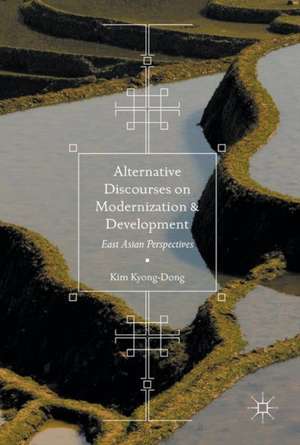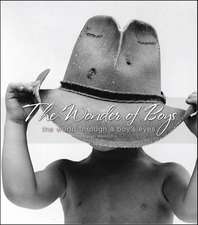Alternative Discourses on Modernization and Development: East Asian Perspectives
Autor Kim Kyong-Dongen Limba Engleză Hardback – 18 mai 2017
| Toate formatele și edițiile | Preț | Express |
|---|---|---|
| Paperback (1) | 485.24 lei 6-8 săpt. | |
| Springer Nature Singapore – 29 iul 2018 | 485.24 lei 6-8 săpt. | |
| Hardback (1) | 587.20 lei 6-8 săpt. | |
| Springer Nature Singapore – 18 mai 2017 | 587.20 lei 6-8 săpt. |
Preț: 587.20 lei
Preț vechi: 690.83 lei
-15% Nou
Puncte Express: 881
Preț estimativ în valută:
112.38€ • 116.89$ • 92.77£
112.38€ • 116.89$ • 92.77£
Carte tipărită la comandă
Livrare economică 15-29 aprilie
Preluare comenzi: 021 569.72.76
Specificații
ISBN-13: 9789811034664
ISBN-10: 9811034664
Pagini: 257
Ilustrații: XXV, 271 p. 5 illus.
Dimensiuni: 148 x 210 x 18 mm
Greutate: 0.51 kg
Ediția:1st ed. 2017
Editura: Springer Nature Singapore
Colecția Palgrave Macmillan
Locul publicării:Singapore, Singapore
ISBN-10: 9811034664
Pagini: 257
Ilustrații: XXV, 271 p. 5 illus.
Dimensiuni: 148 x 210 x 18 mm
Greutate: 0.51 kg
Ediția:1st ed. 2017
Editura: Springer Nature Singapore
Colecția Palgrave Macmillan
Locul publicării:Singapore, Singapore
Cuprins
Prolegomena: Alternative Discourses in Social Science as "Culturally Independent" Scholarship.- The Yin-Yang Dialectic and Principles of Social Change: Culturally Independent Alternative Sociological Ideas.- Selective Modernization and Alternative Modernities: In Search of an Alternative Theory.- From The "Culture of Development" Toward "Cultured" Development: An Alternative Theoretical Approach.- Postscript.
Recenzii
“This three-volume series is a magnificent synthesis of questions and debates over modernization, development and Confucianism in the context of Korea and East Asia. … In sum, the trilogy is a great accomplishment not only for the author, but also for the Korean sociological community, channeling their distinctive experience of modernization with global academia.” (Jaeyeol Yee, Development and Society, Vol. 46 (3), December, 2017)
Notă biografică
Dr Kim Kyong-Dong is Professor Emeritus of Sociology, Seoul National University, South Korea. The preeminent sociologist in Korea, he has devoted his career to analyzing and comparing "east" and "west" issues from a cultural perspective. After gaining his PhD at Cornell University in the US, Professor Kim was a visiting scholar in the US, Taiwan, France and a Fellow at the Woodrow Wilson Center for International Scholars, Washington, DC, as well as President of the Korean Sociological Association. He has widely published in English, Korean, Japanese and French on issues of development and modernization, social change and industrialization, sociological theory, education and religion.
Textul de pe ultima copertă
This cutting edge work offers an alternative perspective on existing paradigms of modernization and development that originated in the West from the vantage point of non-western, late-modernizing societies. It considers how East Asian philosophical ideas enrich the reformulation of the concept of development or societal development, and how influential principles of traditional culture such as yin-yang dialectic interact with modern ideas and technology. It addresses the significance of alternative discourses as culturally independent scholarship, and the problems of pervasive mechanisms of social, political, economic, and cultural dependence in the global academic world.
Caracteristici
Analyses the interaction between Confucian ideas, modernization and development in East Asia Advances how scholarship in late-modernizing societies endeavors to gain 'cultural independence' Considers how the culture of Confucianism has contributed to the historical dynamics of emergence and evolution of capitalism in the three East Asian nations















